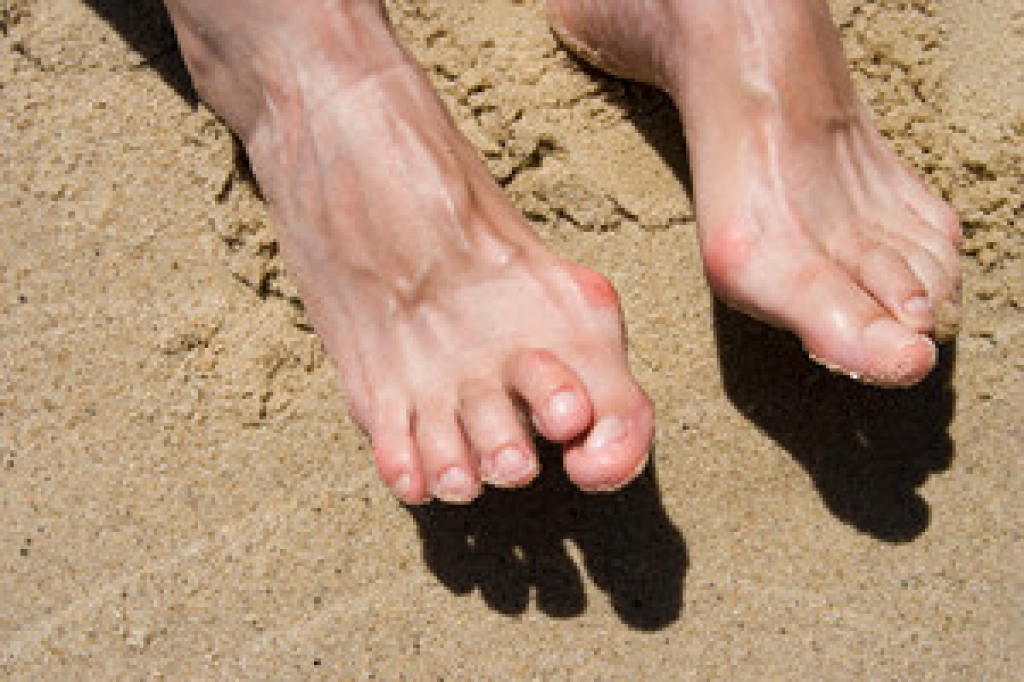
An overlapping toe, whether in adults or newborns, is a common condition with varying causes. In adults, overlapping toes can result from heredity, ill fitting shoes, and different forms of arthritis, including rheumatoid. Biomechanics, such as overpronation or tight calf muscles are other possible causes. Foot conditions, such as bunions, flat feet, hammer toes, and high arches, may cause overlapping toes to develop. Factors such as age and foot injuries can worsen this condition. Overlapping toes can also affect newborns, typically involving the pinky toe overlapping the fourth toe. Genetics and fetal position in the womb can contribute to this condition too. Complications of overlapping toes include pain, corns, calluses, bursitis, and metatarsalgia. Prompt treatment is essential to prevent these complications and to ensure proper alignment of the toes. Non surgical measures include proper shoe fitting, toe separators, and maintaining a healthy body weight. In some cases, surgery may be an option. If you are experiencing overlapping toes, it is suggested that you make an appointment with a podiatrist for an accurate diagnosis and personalized treatment plan.
Toe pain can disrupt your daily activities. If you have any concerns, contact one of our podiatrists of Bangor Podiatry. Our doctors can provide the care you need to keep you pain-free and on your feet.
What Causes Toe Pain?
Most severe toe pain is caused due to a sports injury, trauma from dropping something heavy on the toe, or bumping into something rigid. Other problems can develop over time for various reasons.
Toe pain can be caused by one or more ailments. The most common include:
- Trauma
- Sports injury
- Wearing shoes that are too tight
- Arthritis
- Gout
- Corns and calluses
- Hammertoe
- Bunions
- Blisters
- Ingrown toenails
- Sprains
- Fractures (broken bones)
- Dislocations
When to See a Podiatrist
- Severe pain
- Persistent pain that lasts more than a week
- Signs of infection
- Continued swelling
- Pain that prevents walking
Diagnosis
In many cases the cause of toe pain is obvious, but in others, a podiatrist may want to use more advanced methods to determine the problem. These can range from simple visual inspections and sensation tests to X-rays and MRI scans. Prior medical history, family medical history, and any recent physical traumatic events will all be taken into consideration for a proper diagnosis.
Treatment
Treatments for toe pain and injuries vary and may include shoe inserts, padding, taping, medicines, injections, and in some cases, surgery. If you believe that you have broken a toe, please see a podiatrist as soon as possible.
If you have any questions please contact our offices located in Bangor, Gilbert, and Bethlehem, PA . We offer the newest diagnostic and treatment technologies for all your foot and ankle needs.
